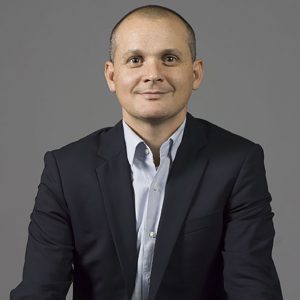A short course on
Numerical Methods for Modeling Dynamic Fracture of Materials
When: April 9-10, 2018
Instructor: Prof. Jean-Francois Molinari, Director Computational Solid Mechanics Laboratory, Civil Engineering Institute, Institute of Materials Science, Ecole Polytechnique Fédérale de Lausanne (EPFL), Switzerland
Location: Johns Hopkins University, Homewood Campus, Baltimore, MD
About the course:
This two-day short course will provide an overview of modern numerical methods for dynamic failure of brittle or quasi-brittle materials.
The first part of the course will be devoted to survey the fundamental concepts of wave dynamics and fracture mechanics. It will give the participants a common vocabulary and cover the main physics that robust numerical methods ought to reproduce.
In the second part we will review the main building blocks of the finite-element method, with an emphasis on dynamics. Explicit and implicit time integration will be covered. We will discuss two strategies to model dynamic crack propagation: the discrete approach in the form of the cohesive-element method, and a non-local smeared-crack approach, in the form of the phase-field method. These methods will be compared on benchmark problems, including dynamic fragmentation and dynamic crack branching instabilities.
Finally, the last afternoon will be dedicated to a hands-on tutorial. Participants will acquire direct experience of numerical simulations of dynamic crack propagation using the open-source HPC finite-element software Akantu, a code developed at EPFL. A webinar will be organized with scientific staff from EPFL to provide adequate support during the tutorial. Some basic knowledge in Python programming language is recommended.
About the instructor:

Professor J.F. Molinari is the director of the Computational Solid Mechanics Laboratory (http://lsms.epfl.ch) at EPFL, Switzerland. He holds an appointment in the Civil Engineering institute, which he directed from 2013 to 2017, and a joint appointment in the Materials Science institute. He started his tenure at EPFL in 2007, and was promoted to Full Professor in 2012.
J.F. Molinari graduated from Caltech, USA, in 2001, with a M.S. and Ph.D. in Aeronautics. He held professorships in several countries besides Switzerland, including the United States with a position in Mechanical Engineering at the Johns Hopkins University (2000-2006), and France at Ecole Normale Supérieure Cachan in Mechanics (2005-2007), as well as a Teaching Associate position at the Ecole Polytechnique de Paris (2006-2009).
The work conducted by Prof. Molinari and his collaborators takes place at the frontier between traditional disciplines and covers several length scales from atomistic to macroscopic scales. Over the years, Professor Molinari and his group have been developing novel multiscale approaches for a seamless coupling across scales. The activities of the laboratory span the domains of damage mechanics of materials and structures, nano- and microstructural mechanical properties, and tribology. Prof. Molinari was a recipient of an ERC Starting Grant award in 2009.
Registration:
Travel and Accommodations:For those traveling by air, we recommend flying in to BWI Thurgood Marshall Airport in Baltimore.
Shuttle, taxi and rental car options are readily available at BWI for a reasonable price.
For those traveling by train, Baltimore’s Penn Station is a 10 minute drive from campus.
The Inn at the Colonnade is located within walking distance of Homewood Campus.
Cancellation Policy:
Update 3/26: This course will go ahead as scheduled
HEMI reserves the right to cancel a course up to 2 weeks before the scheduled presentation date. Please contact the HEMI office ([email protected]) to confirm that the course is happening before making non-refundable travel arrangements.



